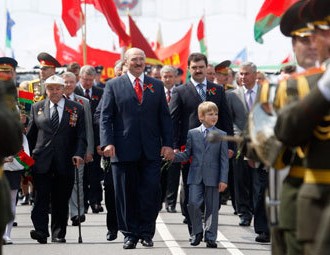Zianon Pazniak: Let Lukashenka come to New York, we will meet him

Émigré politician commented upon Aliaksandr Lukashenka's coming to the US to deliver address in the United Nations.
Belarusian President Aliaksandr Lukashenka will be given the honorable right to speak on the first day of the general debate of the UN General Assembly on September, 28 in New York, BelTA informs. The general debate is to start straight after the 2015 UN Summit that is scheduled for September, 25-27.
"As most world leaders who come to New York take part both in the summit and in the general debate of the General Assembly, especially since the both events are devoted to a single topic this year, we have a reason hold the UN summit-2015 as an opportunity for communication, dialogue and cooperation of world leaders," said Permanent Representative of Belarus to the UN Andrei Dapkiunas.
Let us recall that Aliaksandr Lukashenka rarely stands a chance to visit Western countries as he has been blacklisted for years.
"Let him come, we will meet him," émigré politician Zianon Pazniak told Radio Racyja when asked about Lukashenka's scheduled speech in New York.
In 1996, Pazniak, Chairman of the Conservative Christian Party of the Belarusian People's Front, led the first mass protests against the methods of Lukashenka's rule, which later became known as Spring 1996. After a wave of political repression, Zianon Pazniak emigrated to the West, Belsat recalls.
"But I must say that this is the usual protocol: any member state of the UN, regardless of political issues, sanctions and so on, has the right to participate in the sessions. No one can change it. And in 2005, Lukashenka arrived and made a speech despite the fact that he was illegitimate and no one recognized him. It is the right of the state and it is used. Once Khrushchev used it when he was banging the podium with his shoe; Fidel Castro and other dictators also used this right. It is such a mechanism, it is such an organization. This is such procedure, such organization," Pazniak said.
It is reported that about 160 world leaders will attend the event.
-
03.01
-
07.10
-
22.09
-
17.08
-
12.08
-
30.09








































